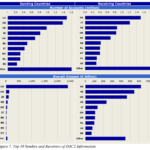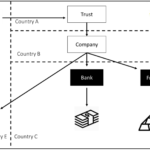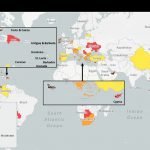Updated: an earlier version of this blog incorrectly referred to the legal opinion of the Advocate General as belonging to Luxembourg rather than to the European Court of Justice. For years, we have advocated the automatic exchange of bank account information across borders. The previous “on … [Read more...]
Information Exchange
 If a person or entity resident in one jurisdiction owns income-generating assets in another jurisdiction, the resident’s tax authorities generally need to know about that asset or income, to assess their tax liabities. So jurisdictions exchange information with each other for tax (and other) purposes under a range of international schemes, agreements and protocols. Many, of course, don’t exchange or even collect that information locally – or they put up obstacles in the way of information exchange.
If a person or entity resident in one jurisdiction owns income-generating assets in another jurisdiction, the resident’s tax authorities generally need to know about that asset or income, to assess their tax liabities. So jurisdictions exchange information with each other for tax (and other) purposes under a range of international schemes, agreements and protocols. Many, of course, don’t exchange or even collect that information locally – or they put up obstacles in the way of information exchange.
Historically, the OECD, a club of rich countries that has been mandated by G20 leaders to promote the agenda, has claimed that its very weak “on request” standards for information exchange constitute the “internationally agreed standard” for information exchange. “On request” means that information is only passed over after a clear request is made, specifying the taxpayer concerned and various other bits of information about him or her. In essence, you have to already know what you are looking for before you ask for it.
However, from around 2012 a new consensus started to emerge, strongly supported by the Tax Justice Network and its allies, that the world needs far stronger standards, notably “automatic” information exchange between jurisdiction, on a multilateral basis. Various working examples of automatic information exchange are already up and running: perhaps most notably the EU’s Savings Tax Directive and the U.S. Foreign Account Tax Compliance Act (FATCA.)
This page provides links and news about information exchange. See also our information exchange archive for older stories.
Image credit: Christian Aid, with thanks.
Developing countries, take note: how much money do your residents hold in Australia, the most transparent country on bank account information
Australia has become the first country to publish statistics on automatic exchange of information for all jurisdictions, especially those that cannot join the automatic exchange system. Here’s what they reveal and why it has more potential than statistics published by the Bank for International … [Read more...]
It’s got to be automatic: Trillions of dollars offshore revealed by Tax Justice Network policy success
This is a moment, in these strange times, to celebrate an ongoing success in the history of the tax justice movement. Automatic, multilateral exchange of information on financial accounts is the A of our ABC of tax transparency. It has been a campaign aim since our inception in the early 2000s, as … [Read more...]
Tax, reparations and ‘Plan B’ for the UK’s tax haven web
The killing of George Floyd by US police in Minnesota, on 25 May 2020, has sparked a public response both more powerful and more international than almost any of the previous cases in a very long line - including Breonna Taylor in Kentucky, 13 March 2020. The demands for justice extend far beyond … [Read more...]
Financial Secrecy Index: who are the world’s worst offenders? The Tax Justice Network podcast special, February 2020
In this special extended Taxcast, Naomi Fowler takes you on a whistle-stop guided tour on an express train around the world with some of the Tax Justice Network team, looking at the worst offenders selling secrecy services according to the latest Financial Secrecy Index results What can nations can … [Read more...]
The use of banking information to tackle corruption and money laundering: a low-hanging fruit the OECD refuses to harvest
Imagine that the OECD set up a global system of rules for exchanging apples across borders, so that everyone can enjoy apples of different tastes. Apple eaters were delighted. But then someone asked if the apples could be used to make apple juice. “Stop!” the OECD said. “The apples are only … [Read more...]
Does transparency REALLY put the rich and famous at risk?
Are the rich and famous at risk of blackmail, extortion or kidnapping if their names are disclosed in public beneficial ownership registries, as they like to argue in tax havens like Jersey? This was a question put to me last week at a conference tackling tax injustice in Nairobi, Kenya, organised … [Read more...]
How to assess the effectiveness of automatic exchange of banking information?
In December 2018 the OECD’s Global Forum published the new terms of reference to assess compliance with the OECD’s Common Reporting Standard (CRS) for automatic exchange of information. Two weeks later, the EU Commission published a report about automatic exchange of information within the EU. Both … [Read more...]
The European Union, tax evasion and closing loopholes: new report
Today, a new report commissioned by the Greens/EFA group in the European Parliament and written by the Tax Justice Network's Andres Knobel demonstrates that despite progress in recent years on closing down opportunities for tax evasion, there are still significant loopholes for citizens and … [Read more...]
Extreme inequality levels in Bermuda despite its offshore services centre, in the Tax Justice Network’s August 2018 podcast
In the August 2018 Tax Justice Network monthly podcast/radio show, the Taxcast: Why are so many Bermudians leaving their beautiful island? And why have inequality levels become so extreme despite it's huge offshore services centre? We speak to Bermudian economist Robert Stubbs and hear from … [Read more...]
Country by country reports: why “automatic” is no replacement for “public”
A critical battle is currently being waged in the international tax policy arena over the implementation of country by country reporting, a reporting process that deters and detects tax avoidance by multinational companies, among other things, by requiring companies to provide a global picture of … [Read more...]
It’s time for countries to start publishing the data they’re collecting under OECD’s Common Reporting Standard
Some financial centres already publish detailed data on cross-border bank account holdings. The OECD’s Common Reporting Standard is now underway, generating lots of this data: it’s time to publish it all. This would cost nothing, breach no confidentiality, and deliver large benefits. Another 50 … [Read more...]
Will the EU really blacklist the United States?
In our latest Financial Secrecy Index assessment, the United States moved up to second place. With its now unparalleled commitment to secrecy at scale, and its influence on international reforms, it has become the leading driver of tax abuse and corruption risk around the world. Years ago we … [Read more...]
OECD rules vs CRS avoidance strategies: not bad, but short of teeth and too dependent on good faith
The OECD's Model Mandatory Disclosure rules for CRS avoidance strategies are not bad in our opinion, but short of teeth and far too dependent on good faith by rogue intermediaries and taxpayers... On March 9th, 2018 the OECD published the Model Mandatory Disclosure Rules for CRS Avoidance … [Read more...]
Now you see me, now you don’t: using citizenship and residency by investment to avoid automatic exchange of banking information
On February 19th, the OECD launched a consultation entitled “Preventing abuse of residence by investment schemes to circumvent the CRS”. It was about time. Since 2014, we have written several papers and blogs (here, here, here, here and here) explaining how residency and citizenship schemes offered … [Read more...]
















